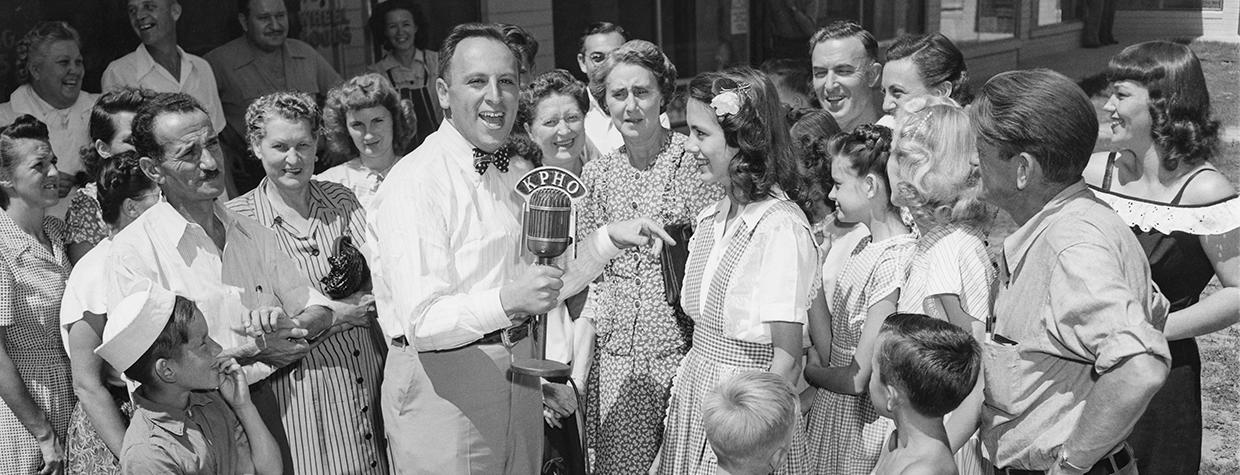Even if you’re new to the state, you’ve probably heard of Wallace and Ladmo, the beloved characters of the long-running TV show that bore their names. But long before Wallace Snead made his broadcast debut, Lew King was engaging and inspiring Arizona’s kids.
King’s children’s talent show was broadcast on more than 400 radio stations nationally before becoming a popular television show on Phoenix’s first TV station, KPHO. The show helped launch the careers of singers Marty Robbins, Wayne Newton, Tanya Tucker and Maxine Johnson, along with those of actors Lynda Carter and Lynda Day George.
Born Louis Klein, the self-described Jewish
kid from the Pittsburgh area got his start booking celebrity acts for his U.S. Army base during World War II. He came to Phoenix for his health shortly after the war ended. King told his stepson, Tim Lorenz, that he’d changed his name to avoid being confused with a man indicted on a murder charge in Arizona. Along with the name, he donned a cowboy hat, boots and a Western persona.
The Lew King Ranger Show began as a weekly talent show at the Fox Theatre in downtown Phoenix. The show made its radio debut in 1947 and moved to the nascent medium of television in 1950, broadcasting from theaters, restaurants and shopping malls around the Valley of the Sun. In the early days, young fans earned a ranger badge by opening a bank account with the show’s sponsor, First Federal Savings & Loan, and rose in “rank” according to their savings.
Margi Curran Schultz and her friend Brenda Niana Laufer won their respective talent contests and became regulars during the show’s final years. Along with Tucker and a handful of others, they sang and performed. “It was really a fun thing,” Schultz recalls, “and we got to perform a lot, which is what we all wanted to do.”
Schultz was devastated when she showed up for rehearsal in 1973 to learn the show had been canceled. “I kind of felt like, What do I do now?” she recalls. But the show gave her the foundation to sing professionally, and she later went to Nashville and sang with Faron Young. Laufer landed national TV commercials and a role with The New Dick Van Dyke Show. And Tucker, of course, became a teenage country music phenomenon.
King hosted another live show for a while, got involved with various businesses and raised money for charities. In 1974, Governor Raul Castro named him “Mr. Arizona.” King died in 1997 and was inducted into the Arizona Music & Entertainment Hall of Fame in 2005.

